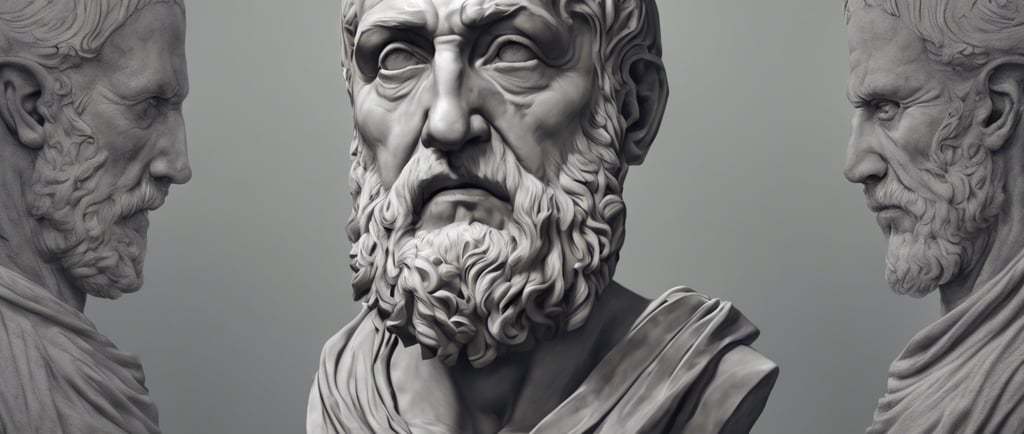The Relationship Between Stoicism and Christianity: Ancient Wisdom Meets Faith
Stoicism and Christianity, two influential philosophical and spiritual traditions, have more in common than many might initially assume. This article explores the intriguing relationship between these two worldviews, highlighting their similarities, differences, and potential synergies.
STOICISM
7/31/20242 min read


Historical Context
Stoicism, founded in ancient Greece around 300 BCE, predates Christianity by several centuries. As Christianity emerged and spread throughout the Roman Empire, it encountered and interacted with Stoic philosophy, leading to some interesting intersections.
Key Similarities
Virtue Ethics Both Stoicism and Christianity place a strong emphasis on living a virtuous life. Stoics focus on wisdom, justice, courage, and self-control, while Christians emphasize virtues like faith, hope, and love.
Self-Control and Discipline Stoicism teaches the importance of mastering one's emotions and desires, a concept that aligns well with Christian teachings on self-discipline and resisting temptation.
Acceptance of Life's Challenges The Stoic concept of accepting what we cannot change bears similarities to the Christian idea of trusting in God's plan and finding peace in difficult circumstances.
Focus on Inner Character Both philosophies prioritize the development of one's inner character over external achievements or possessions.
Notable Differences
Source of Wisdom Stoics rely primarily on reason and logic, while Christians base their beliefs on divine revelation and faith.
Concept of God Stoicism has a more pantheistic view of the divine, while Christianity believes in a personal, transcendent God.
Afterlife Beliefs Christianity teaches a clear concept of an afterlife, while Stoic views on this topic varied and were less central to their philosophy.
Salvation and Grace The Christian concept of salvation through grace is absent in Stoicism, which focuses more on personal virtue and self-improvement.
Influential Figures
Several early Christian thinkers were influenced by Stoic philosophy:
St. Paul: Some scholars argue that Paul's writings show Stoic influences, particularly in his discussions of self-control and contentment.
St. Augustine: While critical of some aspects of Stoicism, Augustine incorporated elements of Stoic thought into his Christian theology.
Boethius: This 6th-century Christian philosopher blended Stoic ideas with Christian theology in his influential work "The Consolation of Philosophy."
Modern Relevance
Today, many Christians find value in incorporating Stoic practices into their faith:
Mindfulness and self-reflection align well with Christian practices of prayer and meditation.
Stoic exercises in gratitude complement Christian teachings on thankfulness.
The Stoic emphasis on focusing on what one can control resonates with the Christian concept of trusting God with what is beyond our control.
Conclusion
While Stoicism and Christianity have distinct differences, their shared emphasis on virtue, self-discipline, and inner growth creates interesting parallels. Understanding these connections can enrich one's spiritual journey, whether coming from a Stoic or Christian background.
By exploring the relationship between Stoicism and Christianity, we gain valuable insights into how ancient wisdom and faith can complement each other, offering a more holistic approach to navigating life's challenges and seeking personal growth.
Waste no more time arguing about what a good man should be. Be one - Marcus Aurelius
We suffer more often in imagination than in reality - Seneca
Wealth consists not in having great possessions, but in having few wants - Epictetus
